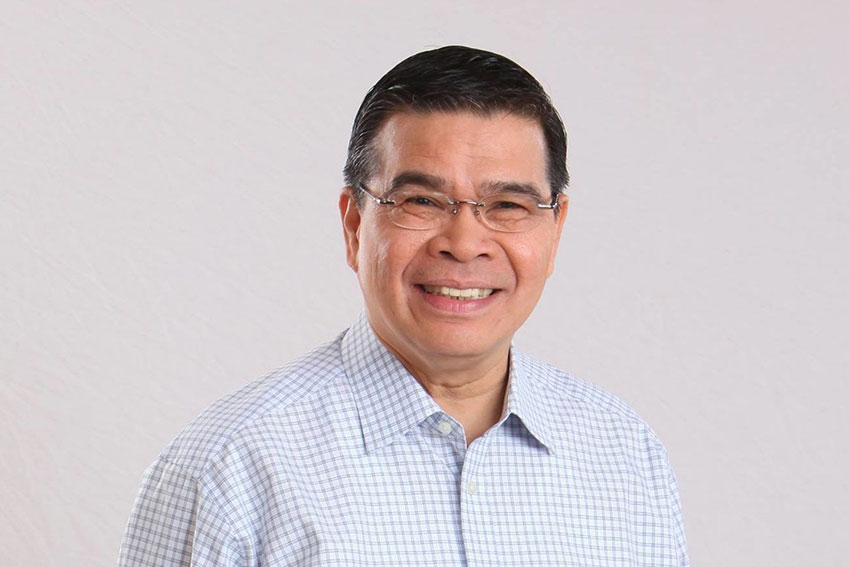Secretary Rodolfo A. Salalima of the Department of ICT says the government has three priority areas for ICT: expanding the broadband network with public free Wi-Fi; E-Government, with the introduction integrated online government portal; and moving the BPO services to the countryside.

Could you please share your views on the impact that the government’s 10-point Economic Strategic Plan and the National Broadband Plan are producing in the ICT sector?
All the Government plans on the ICT sector are managed by our Department and we have focused them to create an easy business environment in the country.
Access to communications is a human right and we see it as an essential service for our people.
We are looking forward to fulfilling our objective of building the necessary infrastructure in the Philippines. The president has ordered us to achieve three things: The broadband network with public free Wi-Fi, E-Government, with the integrated online government portal, and moving the BPO services to the countryside since they are too concentrated in metro Manila.
I want to create a BPO summit to be prepared for this evolution of the sector. This will include all the stakeholders in the BPO services and related business because they are also important. For example, I was talking recently to an American company that wants to localise its BPO services here and we agreed that before they settle we will have to inform technical schools in the area so that they can prepare the workforce for them.
We are also implementing the project Tech4ed which is designed to help on the empowerment of education through technology. We have 8 offices around the country and we want to expand it to 17 to reach all the regions. We conduct seminars for people within the government and outside so they can learn how to implement IT solutions in their day-to-day.
This is also intended to reach the unemployed so they can get the skills to finally find a job.
The Government of the Philippines is making efforts to facilitate money inflow to the country, with initiatives like the economic zones or bilateral agreements to attract ODA. What is the significance of regional integration when talking about the ICT?
Regional integration is very important because of the globalised economy that we are already living in. Our country alone might not be able to compete in the international arenas as strongly as we can as ASEAN so I see this regionalization as a very positive measure. This is our option to be really competitive.
In this regionalization, the country has established a long-lasting relationship with Japan. What are the synergies between both countries that you would highlight?
It is clear that countries like India, China and of course Japan are seeing the potential of ASEAN. I would like to highlight the funding, which is very important, but also the knowledge that Japan brings since it is more advanced technologically and we can learn from them.
For example, recently we welcomed the Japanese Minister of ICT because we were doing the transition from analogue to digital TV using the Japanese standard.
I am going also early April 2017 to Japan and we are going to sign an MOU between the Japanese Ministry of information and our Department of ICT to collaborate on future needs.
Being at the forefront of the 4th Industrial Revolution and investing in broadband infrastructure could benefit the Philippines greatly, considering that each 10% increase in digitalisation and broadband penetration sparks GDP by 1.38% according to World Bank data. How can the Philippines be a leading country in terms of ICT?
Nowadays India is the number one in global BPO with the Philippines in the second place, but we are already leading in “voice BPO services”. BPO generated revenues of around 22 billion in 2015 in the Philippines creating 1.3 million jobs.
We plan to double the number of BPO by 2022 so that the revenues from those will be higher than the revenues sent by the Overseas Filipinos.
Japanese companies are very keen to expand their business in the Philippines. What is the trigger for that, why do you think Japanese companies have such an interest in this country?
I think it is a mixture of different factors; we have a strategic location, our population speaks English and we boast of good engineers. In some other countries, this might also be true, however, we are close to our client markets which makes it easier to adapt to the strict working requirements that Japanese companies usually have.
I would like to get a bit deeper into the national broadband project because it is a very ambitious project. How is the Government going to finance it? Is there room for PPPs in it?
Yes, there are PPP’s, funding from other countries and the world bank and some private companies that want to be partners in the management of the broadband. There are tenders from Europe, China, and others. We are not starting from scratch because we are connected to the national power grid that has a telecommunications network which is not fully utilised and we will be able to use around 10.500 optic fibre lines.
You have been in the ICT sector a long time and representing the country all over the world, with this experience in mind, what is the legacy that you would like to leave as Secretary of ICT?
I would like to leave a good digital infrastructure for my country and train and create a citizenry to be functional and digital literate at the least. Because as I said before, everyone has the right to communicate and have access to information.
0 COMMENTS